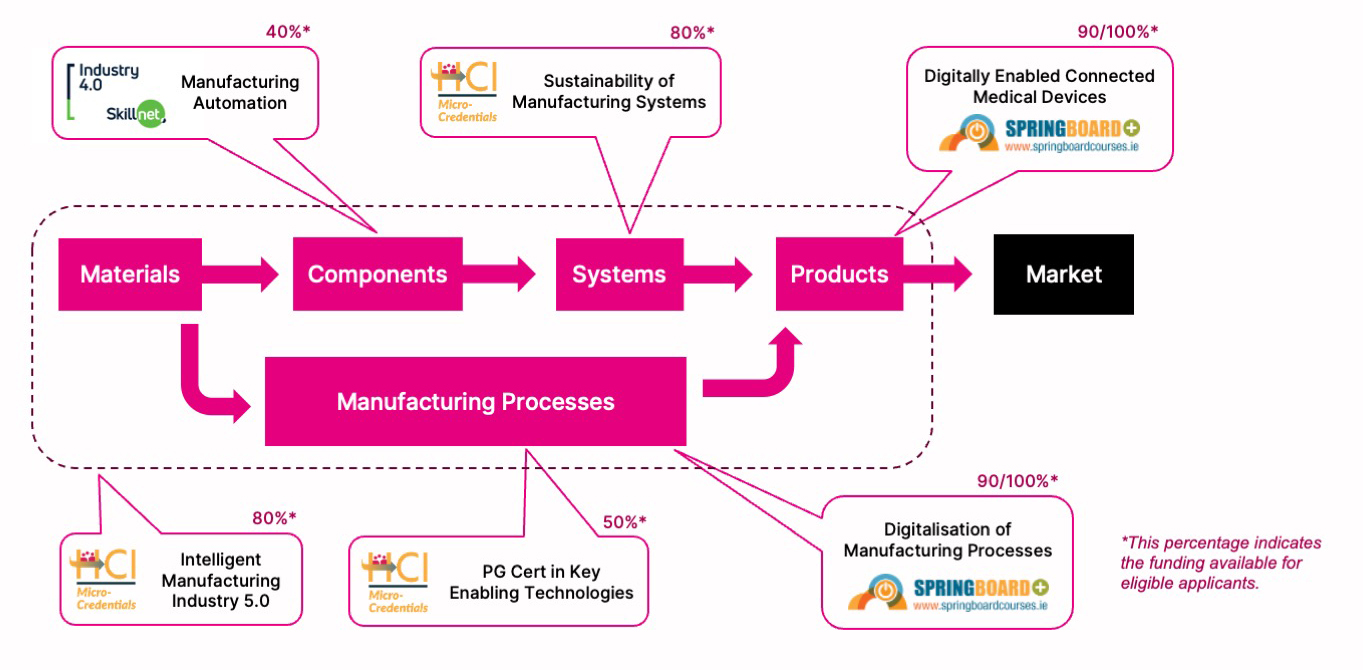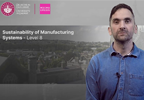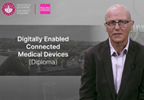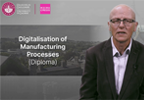-
Courses

Courses
Choosing a course is one of the most important decisions you'll ever make! View our courses and see what our students and lecturers have to say about the courses you are interested in at the links below.
-
University Life

University Life
Each year more than 4,000 choose University of Galway as their University of choice. Find out what life at University of Galway is all about here.
-
About University of Galway

About University of Galway
Since 1845, University of Galway has been sharing the highest quality teaching and research with Ireland and the world. Find out what makes our University so special – from our distinguished history to the latest news and campus developments.
-
Colleges & Schools

Colleges & Schools
University of Galway has earned international recognition as a research-led university with a commitment to top quality teaching across a range of key areas of expertise.
-
Research & Innovation

Research & Innovation
University of Galway’s vibrant research community take on some of the most pressing challenges of our times.
-
Business & Industry

Guiding Breakthrough Research at University of Galway
We explore and facilitate commercial opportunities for the research community at University of Galway, as well as facilitating industry partnership.
-
Alumni & Friends

Alumni & Friends
There are 128,000 University of Galway alumni worldwide. Stay connected to your alumni community! Join our social networks and update your details online.
-
Community Engagement

Community Engagement
At University of Galway, we believe that the best learning takes place when you apply what you learn in a real world context. That's why many of our courses include work placements or community projects.
Sustainability of Manufacturing Systems (Diploma)
Course Overview
The Diploma in Sustainability of Manufacturing equips students to work in the important field of sustainable manufacturing. Learners will explore key environmental challenges and discover how to implement sustainable changes at both a strategic and practical level within enterprises.
Through a combination of theory and hands-on learning, students will develop the skills needed to effectively operate, manage, and troubleshoot processes in the manufacturing industry with sustainability in mind.
Students are encouraged to join the course with an industry-based project concept. Participants will learn by developing this project concept by taking modules in Enterprise Simulation for Digital Twinning, Design of Engineering Systems, Environmental Science and Environmental Management.

The HEA Micro-credential Learner Fees Subsidy funds this course for micro-credentials and Diplomas between 5 and 30 credits. Candidates who satisfy the HEA eligibility criteria are funded at 80% for this course. Funding is subject to availability of places at the time of application.
Applications and Selections
Applications open from the 15th April 2025.
Applications are made online via the University of Galway Applications System. This course is listed under Adult Learning Undergraduate\Postgraduate, CPD, Micro-credentials & Summer School Applications.
Please visit our How to Apply page for Application tips and Supporting Documents information.
NB: Applicants should have a Diploma at NFQ Level 7 of 90 ECTs minimum, in a Science, Engineering or Technical area, or otherwise prove that they satisfy the prerequisites of each of the modules as listed in the course outline section.
Who Teaches this Course
Requirements and Assessment
Assessment is carried out through a combination of assignments, written examinations, and, where applicable, practical laboratory work. Examinations are scheduled at the end of each semester, and each module is assessed individually.
The course is delivered part-time through a blended learning approach. Learners will be provided with online materials for each module, specifically developed for independent study. These will be complemented by recommended readings and interactive resources where relevant. In-person attendance is required for approximately 10 hours per module, typically scheduled on Saturdays.
Each module features a substantial workplace project component and offers opportunities to develop transferable skills throughout the course.
Key Facts
Entry Requirements
Applicants should have a Diploma at NFQ Level 7 of 90 ECTS minimum, in a Science, Engineering or Technical area, or otherwise prove that they satisfy the modules' prerequisites as listed in the course outline section.
Entry requirements for part-time students can be found here (i.e. Age, English language requirements, etc.).
Additional Requirements
Recognition of Prior Learning (RPL)
If you do not meet the standard entry criteria for this course, you may gain entry through our Recognition of Prior Learning (RPL) policy. Find out more here.
Duration
1 year, part-time
Next start date
September 2025
A Level Grades ()
Average intake
25
QQI/FET FETAC Entry Routes
Closing Date
NFQ level
8
Mode of study
Blended Learning
ECTS weighting
30
Award
Diploma (Minor)
CAO
Course code
Course Outline
The course consists of two 10 ECTS modules and two 5 ECTS modules:
10 ECTS modules:
- Design of Engineering Systems with Project
The aim of this course is to introduce the basic theoretical and practical concepts of engineering systems design. It lays out the fundamentals of a wide range of design-related activities. The module describes the major structure of design activity, highlighting the main stages of the design process, their significance, characteristics, requirements and methods of evaluation. The module describes both product and process design, design for high reliability and safety with practical emphasis on important modern problems, such as design for energy efficiency, design for low environmental impact and digitalisation. This module also aims to develop your skills in problem-solving, critical thinking, decision making, written and oral communication, teamwork and creativity, innovation and entrepreneurship. - Enterprise Simulation and Digital Twinning with Project
Enterprise simulation is the process of building digital models of whole or part of an enterprise with process models, data models, resource models and/or new processes etc. Digital Twinning deals with the process of understanding an enterprise and improving its performance through creation of computer simulations. It is based on knowledge of the enterprise, its infrastructure, technology and human resources.
5 ECTS modules:
- Environmental Science
This module aims to enhance the learners' understanding and appreciation of environment-related disciplines. It covers facts and attitudes that help the learner to understand and evaluate current environmental issues critically, evaluate technological advances, and put environmental issues into a legal perspective. - Environmental Management for Organisations
Drawing on contemporary examples, Environmental Planning and Management for Organisations will explore the roots and principles of environmental planning and management in practice, introducing students to a range of conceptual and practical approaches. This is a core module focusing on processes, scale and case studies in environmental planning in industrial and commercial organisations and laying the foundation for the other modules. Environmental planning and management will be explored in an interdisciplinary context applicable to a variety of backgrounds, such as manufacturing, operations and environmental engineering, environmental and quality science, health and safety, social geography, business and management, regulations and compliance.
The Manufacturing Process
The manufacturing process involves transforming materials into functional components, which are assembled through sustainable, intelligent, manufacturing systems into products. These products are designed to meet specific market needs. Our new advanced manufacturing diplomas respond to employee skills needs at every stage of this process. See the chart below for an overview of related courses and how they align within the overall manufacturing process.

Further Education
Successful candidates may progress in subsequent years to an alternative Diploma or to a Degree in Science and Technology studies, thereby building their skills and qualifications to Level 8 Bachelors award. Find out more here.
Why Choose This Course?
Career Opportunities
Industrially relevant assignments and projects form a key part of this course and allow the students the freedom to apply what they have learned to real-life scenarios including in their workplace. The applied nature of the assignments and lab activities further anchor this learning and prepare the learner for the workplace.
The identified career pathways specific to this course include:
- Sustainability Consultant
- Environmental Engineer
- Operations Manager
- Lean Manufacturing Specialist
Who’s Suited to This Course
The course is designed for working professionals, allowing them to upskill while employed. It helps participants enhance their employability, address skills gaps, and build key competencies. Jobseekers receive career support through sessions with specialists in the Career Development Centre.
Learning Outcomes
At the end of the course, students will be able to:
- Identify where the transition to sustainable manufacturing systems is possible.
- Implement the twin transition towards more sustainable and highly digital manufacturing systems.
- Extract and analyse real-time data from manufacturing processes for reporting under the Corporate Sustainability Reporting Directive.
- Diagnose problems by thinking critically, innovating and collaborating through team-based work.
- Evaluate, through written and oral communication, technical findings concerning sustainable manufacturing systems.
- Value lifelong personal and professional attributes such as communication, interpersonal, analytical, enterprising and problem-solving skills relevant to a vibrant, technologically advanced economies.
Transferable Skills Employers Value
Job readiness is integrated across all modules through group work, problem-solving assignments, conflict resolution discussions, and leadership opportunities in team projects.
Experiential learning, including immersion in labs and opportunities for work-based projects, helps learners develop essential transversal skills such as teamwork, communication, creativity and innovation.
Work Placement
Study Abroad
Related Student Organisations
Course Fees
Fees: EU
Fees: Tuition
Fees: Student levy
Fees: Non EU
*The HEA Micro-credential Learner Fees Subsidy funds this course for micro-credentials and Diplomas between 5 and 30 credits. Candidates who satisfy the HEA eligibility criteria are funded at 80% for this course. Funding is subject to availability of places at the time of application.
Find out More
Course Administrator
Tel: 091 493909
Email: sciencetech@universityofgalway.ie























